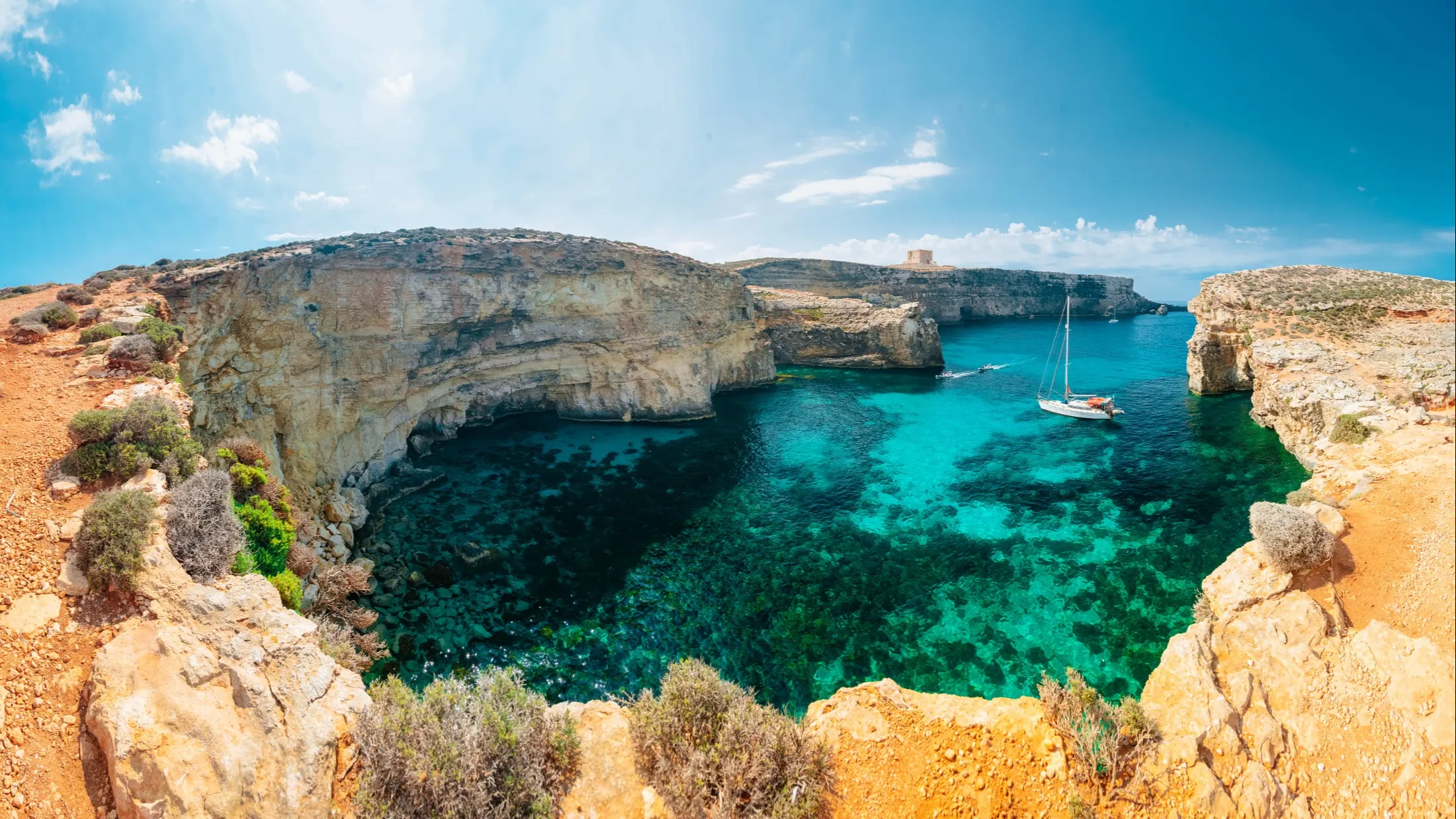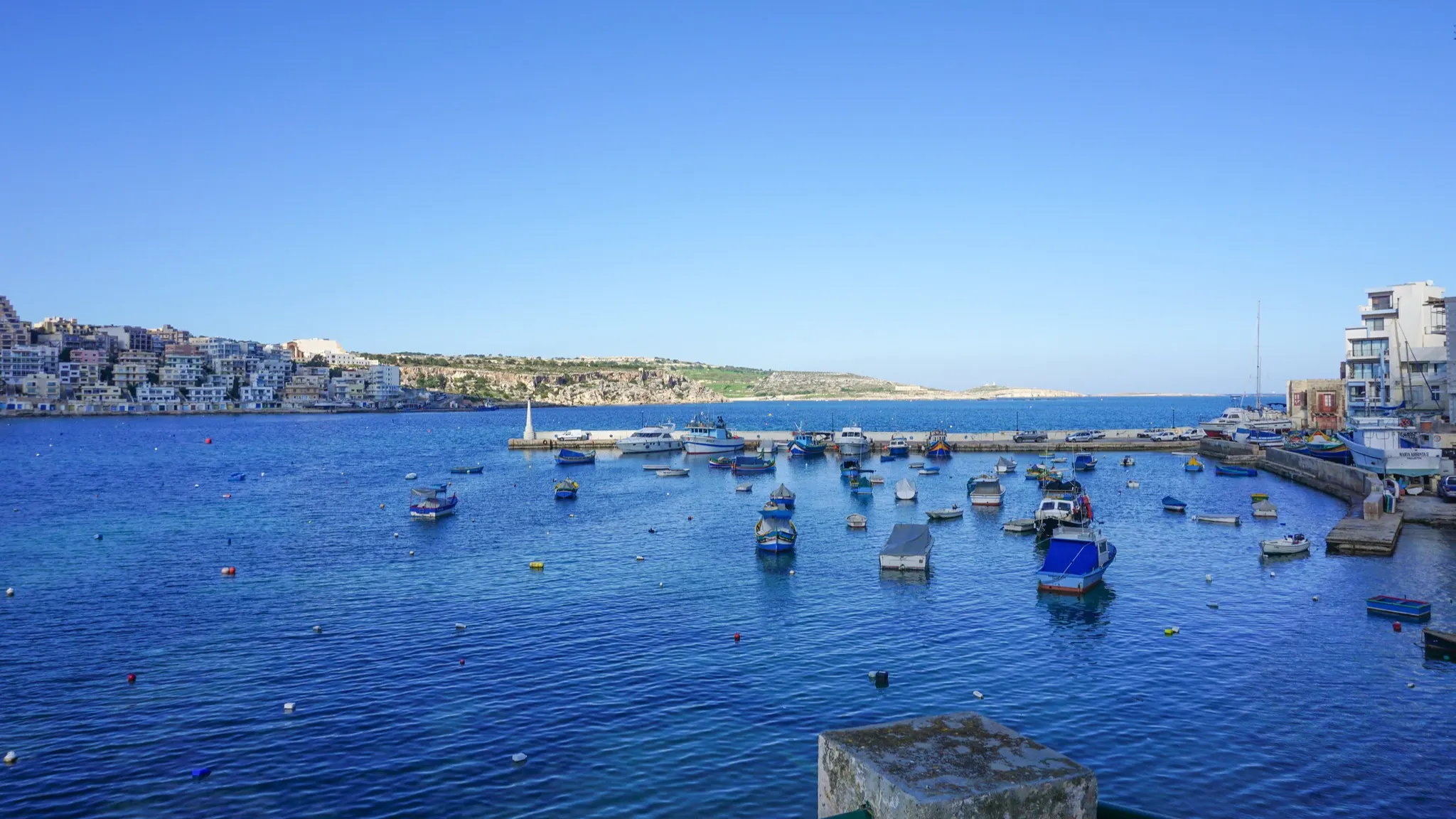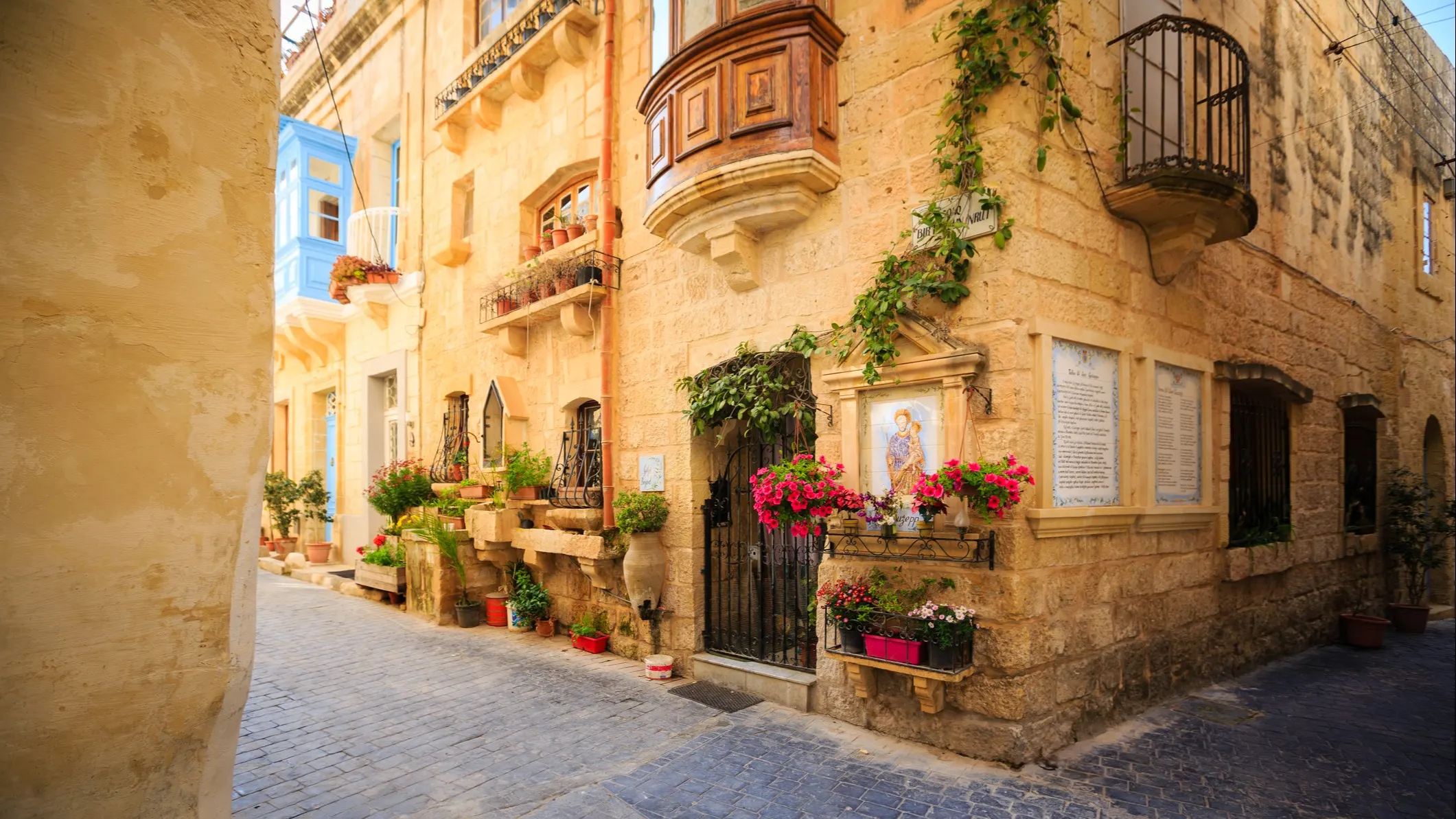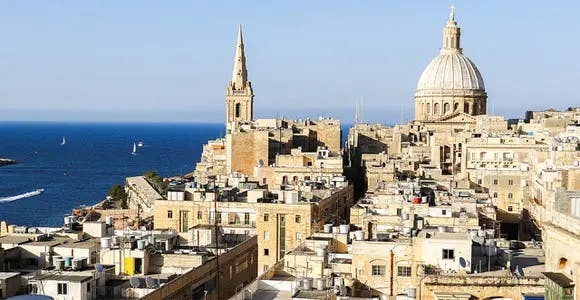Europe offers a plethora of unique countries for people planning to retire overseas. Since the pandemic, and general political/economic instability, many North Americans are reassessing retirement and looking for more affordable, stable lifestyle options. The popular Mediterranean countries—Portugal, Spain, France, Italy, Greece, and Croatia—get a lot of press for many good reasons. But there’s one Mediterranean gem that often gets overlooked. The islands of Malta!
Malta is ideally located, nestled between Europe and North Africa in the middle of the Mediterranean. That means sunny skies and mild winters (along with hot summers). The last time it snowed in Malta was in 1962. Europeans have known about these enchanting and affordable islands for a long time (Malta has been an EU member state since 2004). Still, many North Americans are just discovering this fascinating island nation, rich in history and culture—and English-speaking—in the middle of the sea.

Preparation
If you plan on a scouting trip, your Canadian or U.S. passport is all you need to enter for 90 days. Starting November 2023 (unless there are further delays), you will need to purchase an ETAIS visa online for €7.
Until the new ETIAS system is implemented, you can fly into Malta, and your Schengen visa will be stamped into your passport upon arrival in your gateway country (there are no nonstop flights from the Americas to Malta). Your Schengen short-stay C-Visa will be valid for 90 days. If you want to extend your visit, you can apply (before the initial 90-day expiry) at the Maltese Ministry of Foreign Affairs for an additional three months on a long-stay D-Visa. However, whether you receive this extra time is entirely at the discretion of the Maltese authorities.
If you’re planning to move permanently, you’ll want to apply for a digital nomad visa, work visa, or begin the process for residency upon arrival. You can find more details about residency options at Identity Malta.
You will also need to set up a place to live. It’s always recommended that you rent before buying, no matter where in the world. If you rent first, and that place doesn’t meet your expectations or your needs, you won’t be tied to an unwanted property.
Although small, the islands offer many choices for accommodation. The most popular (and densely populated) area is in the capital of Valletta, and the surrounding area, called the “Inner Harbour.” That region includes the popular expat communities of Sliema, St. Julian’s, Gzira, and the three cities across Valletta’s harbor to the south - Vittoriosa, Senglea, and Cospicua.
Once you are further out from the inner harbor area, you’ll find a bit more space, as well as more affordable housing prices in the south - places such as Birżebbuġa, Marsaskala and Marsaxlokk and North Malta in St. Paul’s Bay and Mellieħa, as well as the other habitable island, Gozo. You can find a number of long-term lets online. Or better yet, rent an Airbnb for a couple of weeks and explore with a leasing agent on the ground. It’s always better to see a property in person before committing to live there long term. Beware, photos online do not always tell the full story.
The currency used in Malta is the euro (€). You’ll want to be sure to have some cash on hand when you prepare for your trip, and you can change dollars at banks in Malta. Having an ATM card to draw euros from your local bank account is also good; they typically offer the best exchange rate. Certain U.S. banks, such as Charles Schwab, don’t charge overseas ATM fees. Malta does not have money exchanges on every corner, so the bank or ATM is your best bet. The worst exchange rates are typically at hotels and airports.
Malta uses the British three-prong square plug, not the typical two-pin round one you find in the EU. Be sure to have plug adapters for your electronics and any small appliances you bring with you. Computers, tablets, and phone charging cords come with a small electric converter box built into the cord or plug, but you should bring a voltage converter along with you, as well. Malta and the EU use 220 volts as compared to the Americas, which run on 110 volts.
In preparation, join a couple of online groups to ask specific questions and get advice from expats who have made the move before you. Facebook has several expat groups, including Expats Malta and Americans in Malta. There is also a very active chapter of InterNations in Malta. This is an international organization with chapters around the world. You can join for free and learn about all sorts of monthly activities from boating, to happy hours and wine tastings, to historical tours. This way, you can be better armed and even have a new circle of friends before you arrive.
Marijuana was legalized in Malta in December 2021, so if you imbibe for medicinal or recreational purposes, do not risk carrying it through borders where it’s illegal.
Living Costs
You will find that, overall, Malta is more affordable than North America. Although much is imported, in the way of food and supplies, you won’t find outrageous import tariffs as you might in places like Costa Rica or many of the Caribbean islands. Malta is part of the EU, so the country enjoys the free trade agreement with the continental European states. Many supplies are brought in by ferry from Italy, so you’re not paying the high fuel costs of flying everything to the islands.
Depending on your lifestyle, your cost of living will reflect that. If you live extravagantly, you will also need a big budget in Malta. But many couples live comfortably on $2500/month, even better at $3000+. Generally, housing costs will be less expensive than in cities in North America, and you can find furnished two-bedroom apartments in the $1000 /month range. However, if you want to live in a more popular area with a view, prices will increase from $1500 upwards.
You can find new build-out apartments/condos for sale under $200,000, although prices are higher in the $300,000+ in the more popular areas.
Food is generally cheaper, or similar in price. Like everywhere, the fancy grocery stores will cost more. But you can also find great deals at the mobile produce trucks and the fish markets. Food costs for locally produced EU products are similar to most of the Mediterranean countries. For example, a 12-pack of eggs runs about $3.60, a liter of milk is approximately $1, and a large fresh baked baguette is around 50 cents. Non-EU products, such as coffee, will be more expensive.
The main Island of Malta is relatively small, 17 miles (27 kms) long and nine miles (14.5 kms) wide —therefore, transportation around the island doesn’t take very long by North American standards. You will find a good bus network that is safe and inexpensive ($2 during the day and $3 at night, with monthly packages available); however, it’s not always completely reliable to get you where you are going on time! Rideshares apps, such as Bolt, eCabs, and Uber, are extremely popular for short trips around the island. You can also rent a scooter or car at prices considerably less than other popular tourist destinations. Rates start at as little as $14/day, and your home driver’s license is all you need to be on your way. Just remember that Malta drives on the left side.
Healthcare
Unless you are an EU citizen, you must have private healthcare insurance. You can travel initially without a policy or with just travel insurance. However, if you plan to apply for a longer-term visa or residency, the government will require proof of a healthcare policy. Wait to buy a local policy in Malta, because they are considerably less expensive than you would find in the U.S.
Malta has excellent healthcare. It’s up to EU standards, and relatively affordable. Like most countries around the world, there is a public and private system. You can visit any private clinics or hospitals with your private insurance, and many doctors work in both sectors. Even many Maltese use the private alternative to avoid the long wait times typical in public healthcare for non-emergencies.
A cost guide for medical pricing:
Physician visit at a pharmacy $25
House call $40 to $50
Ultrasound $200
MRI starting at $250
Dental check-up/scaling $50
Standard filling $60
Root canal $300 to $350

Safety
The Global Peace Index (GPI), produced annually by the Institute for Economics and Peace, is the world’s leading measure of global peacefulness. It’s calculated using 23 qualitative and quantitative indicators, and measures the state of peace in the context of societal safety and security, the extent of domestic and international conflict, and the degree of militarization. Of the 163 countries surveyed, Malta consistently ranks in the top 30, along with most of their EU neighbors and safe countries, such as Canada, Australia, New Zealand, and Iceland.
Violent crime is extremely rare in Malta, and they don’t have mass shootings, and it’s also uncommon to experience carjackings or break-ins. Typical safety precautions you would take when traveling anywhere should keep you unharmed—avoid dark places late at night, don’t flash lots of money or expensive jewelry around, watch your cocktail and cellphone if you are in a late-night party place, don’t leave doors unlocked or valuables visible in your car, etc.

Popular Destinations
The most popular expat destinations include the inner harbor area of Sliema and St. Julians. The British settled in this area when Malta was a member of the British Commonwealth for nearly 150 years. The district runs all along the seafront, offers endless shopping and restaurants, and tends to be some of the most expensive housing in the country. However, there are still deals to be found if you are on a tight budget.
Valletta housing is also an option (typically older, traditional Maltese apartments or townhomes, if you want to live directly in the capital city). Floriana is a popular Valletta suburb located on the same peninsula as the city. Both are central locations to the storied history of Malta. However, lately, it has been costly to pin down affordable accommodations in this bustling city. It’s seeing a resurgence of renovations and people moving back into the capital.
Many expats who want to get away from the hustle and bustle of the Inner Harbor look to the north. St. Paul’s Bay/Buġibba has become quite popular for vacationers and investors in recent years. You will find a boom of all kinds of new apartment complexes, many with breathtaking sea views.
Mellieħa, further north, sits on a large stunning bay with a beautiful golden beach. The waves are small due to its geographic situation—making it very family-friendly. New housing projects there are in the works geared for expats and residency property purchase requirements.
If one is looking for even more tranquility, the Maltese Island of Gozo has become a popular alternative. Victoria is the capital, and you will find several expats there, and even in some of the other tiny towns dotting the coastline of this breathtaking island. The only way to get to Gozo is by passenger/car ferry from the main island of Malta. Therefore, it is a more remote choice for full-time living.
Although you won’t find much real estate available in Malta’s former capital, the ancient walled city of Mdina (these old properties are passed down through the Maltese generations), the sister city of Rabat has attracted a small number of expats. Inland, it sits on a high point of the island with commanding views and the sea in the far distance.
People are discovering that Malta ticks a lot of boxes. Sunny and temperate, rich in history, an affordable cost-of-living, English as one of the official languages, healthcare options that won’t break the bank, a large expat community, friendly Maltese locals, a stable government and currency, a great launching point for the European continent, and a variety of housing. All add up to reasons why Malta deserves consideration for retirement, nomading, or investing.









